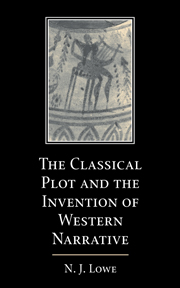Conclusion
Published online by Cambridge University Press: 22 September 2009
Summary
Before the end, a review of the story so far. Part I argued that the idea of ‘plot’ is not arbitrary: that it is the best available label for a fundamental process in the way human minds decode and respond to narrative texts, by representing fictional worlds in the form of a closed and rule-bound chessboard universe. In the model proposed here, stories are understood as systemically closed possible worlds developing in time; and much of this process can be usefully formalised by appropriating terminology from the vernacular language of games, which has developed specifically to describe the elements of the structure of such worlds. Thus plots are like chess problems revealed a bit at a time: where the reader can be asked what happened before as well as after a given position, and the gradual revelation of actual moves and hints about moves allows the text to manipulate the reader's developing model of the game as a whole in the linear process of reading. The ‘classical’ phylum of plot privileges three special narrative values, here labelled ‘economy’, ‘amplitude’, and ‘transparency’: respectively the degree of functionality of narrative game elements, the clarity of the narrative system in large-scale textual forms, and the closedness of the narrative system to external elements.
Information
- Type
- Chapter
- Information
- The Classical Plot and the Invention of Western Narrative , pp. 259 - 263Publisher: Cambridge University PressPrint publication year: 2000
